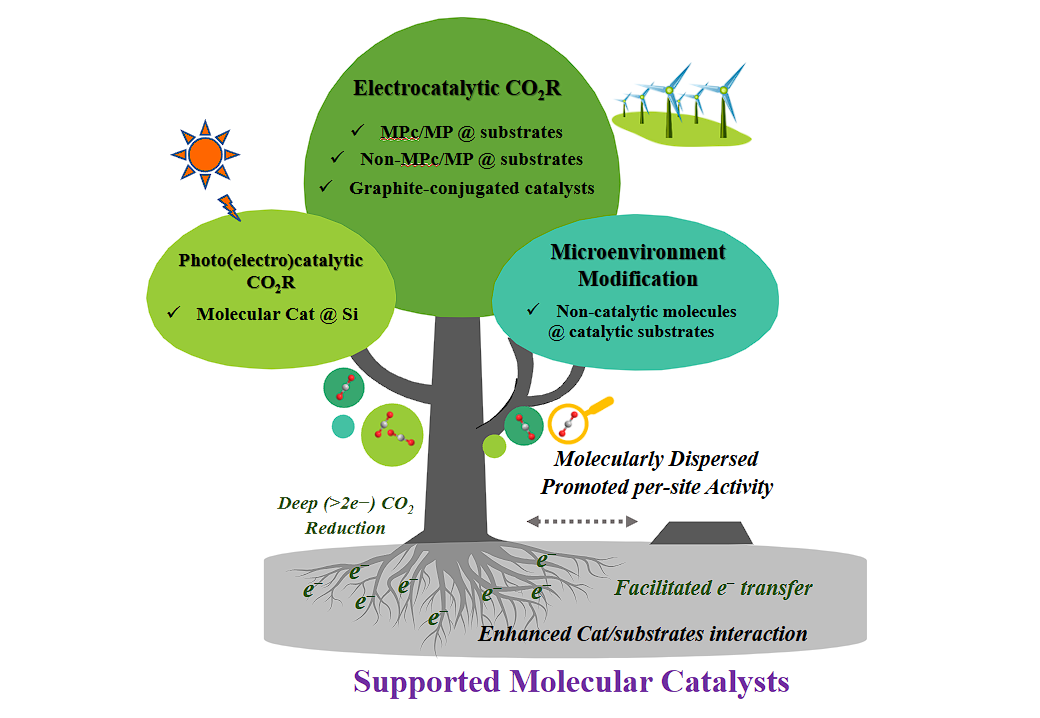Ke Ma†, Shiyu Zhang† and Weixuan Nie*, ChemElectroChem, 2025, 12, 13, e202500074.
Abstract: Electrochemical CO₂ reduction (CO₂R) to value-added products using renewable electricity offers a promising approach toward achieving carbon neutrality. Among various electrocatalysts, molecular catalysts, particularly transition metal complexes, stand out due to the high selectivity for single specific products and desirable tunability, enabling rational optimization of catalytic performance. However, their practical application is hindered by low operating current densities and challenges in catalyst recycling. To address these limitations, immobilizing molecular catalysts on electrode surfaces has emerged as an effective strategy, integrating selective molecular catalysts into heterogeneous catalysis. This mini-review focuses on a distinct category of heterogenized molecular catalysts—those molecularly dispersed and supported on substrates or electrode surfaces—which exhibit remarkable catalytic activity at the single-molecule level and the ability to drive deep CO₂ reduction (beyond 2 electrons) under certain conditions. Recent progress in this field is comprehensively discussed, emphasizing the critical impacts of molecule-level dispersion and catalyst-support interactions on electronic properties, multi-electron transfer kinetics, and overall catalytic performance. Moreover, the overview of potential applications of supported molecular catalysts beyond electrochemical CO₂R is provided at the end. This mini-review aims to offer valuable insights for the future design of efficient and scalable electrocatalysts for sustainable CO₂ conversion.
![]()


